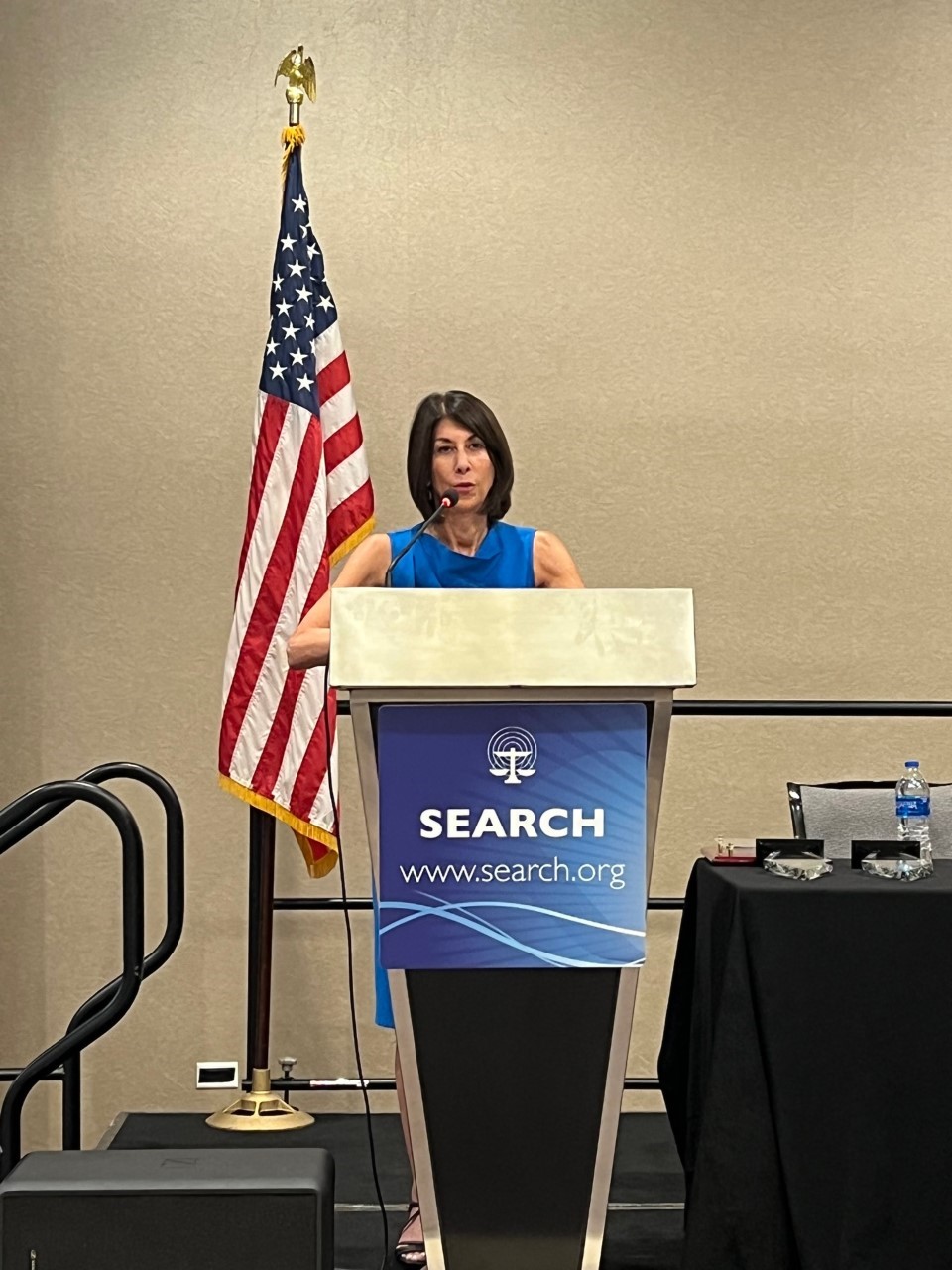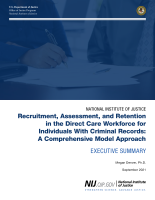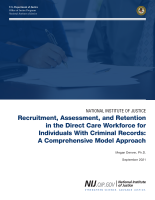Background checks
Targeting the "Absence" in a Desistance Framework: Balancing Risk and Rehabilitation in Mandated Criminal Background Check Employment Decisions
Firearm Purchase Behavior and Subsequent Adverse Events
The Problem with Criminal Records: Discrepancies between State Reports and Private-sector Background Checks
Defensible Decisions: Balancing Employer and Prospective Employee Rights in an Era of Criminal Background Checks
Criminal Background Checks and Recidivism: Bounding the Causal Impact
Public Mass Murderers and Federal Mental Health Background Checks
Webinar: NIJ Research Assistantship Program Informational Webinar
This recorded webinar, originally held September 28, 2023, provides information on NIJ’s Research Assistantship Program, which offers highly qualified doctoral students the opportunity to bring their expertise to NIJ to work across offices and program areas to obtain a practical and applied research experience. The program is a research focused professional development opportunity for doctoral students from all academic disciplines. NIJ...
Before and After Ban the Box: Who Complies with Anti-Discrimination Law?
Inclusive Research: Engaging People Closest to the Issue Makes for Better Science & Greater Impact; 2023 NIJ Research Conference Plenary
This panel will discuss what inclusive research is, how to conduct it, and what issues and challenges exist about engaging in it. “Inclusive research” has its history as a participatory research method designed to ensure people closest to the issue or problem under study are authentically engaged in the research process rather than simply being “research subjects.” While community-based participatory research has begun to take on greater prominence in the criminal justice realm, such efforts are largely confined to qualitative research inquiries.
See the YouTube Terms of Service and Google Privacy Policy
Technical Advances in Background Checking and the Impact on Work Opportunities in New Jersey
The Hidden Costs of Reentry: Understanding the Barriers to Removing a Criminal Record
NIJ hosted a webinar to discuss under-researched aspects of reentry: expungement of criminal records and the impact of those records. This webinar includes a presentation of ongoing research projects examining the impact of legal aid for expungement and past research projects studying the accuracy and permanency of criminal records and the prevalence of collateral consequences of conviction. A Q&A session will conclude this webinar.
See the YouTube Terms of Service and Google Privacy Policy
Desistance: It's a Process, Not an Event
Just Science Podcast: Just Research of Dating Apps and Violent Sexual Assault Cases
NIJ-Funded Research on Firearms Violence in Urban Cities Advancing Scientific Evidence to Inform Practice
In this full thematic panel, renowned experts will present a series of papers summarizing the newest findings of NIJ-funded research projects on criminal offenses with firearms in urban areas. Researchers used various criminological and other theories, including routine activity theory, socio-ecological and socio-environmental perspectives, and advanced mixed-study methods, including surveys and spatio-temporal designs, to produce scientific evidence to inform practice.
See the YouTube Terms of Service and Google Privacy Policy
The Impact of State Firearm Laws on Homicide Rates among Black and White Populations in the United States, 1991-2016
Recruitment, Assessment, and Retention in the Direct Care Workforce for Individuals with Criminal Records: A Comprehensive Model Approach, Executive Summary
Recruitment, Assessment, and Retention in the Direct Care Workforce for Individuals with Criminal Records
Criminal Records, Positive Credentials and Recidivism: Incorporating Evidence of Rehabilitation Into Criminal Background Check Employment Decisions
Advancing Understanding, and Informing Prevention of Public Mass Shootings: Findings from NIJ Funded Studies, Part 1
In recent years, NIJ invested in several research projects to advance understanding and inform prevention of public mass shootings.
See the YouTube Terms of Service and Google Privacy Policy








